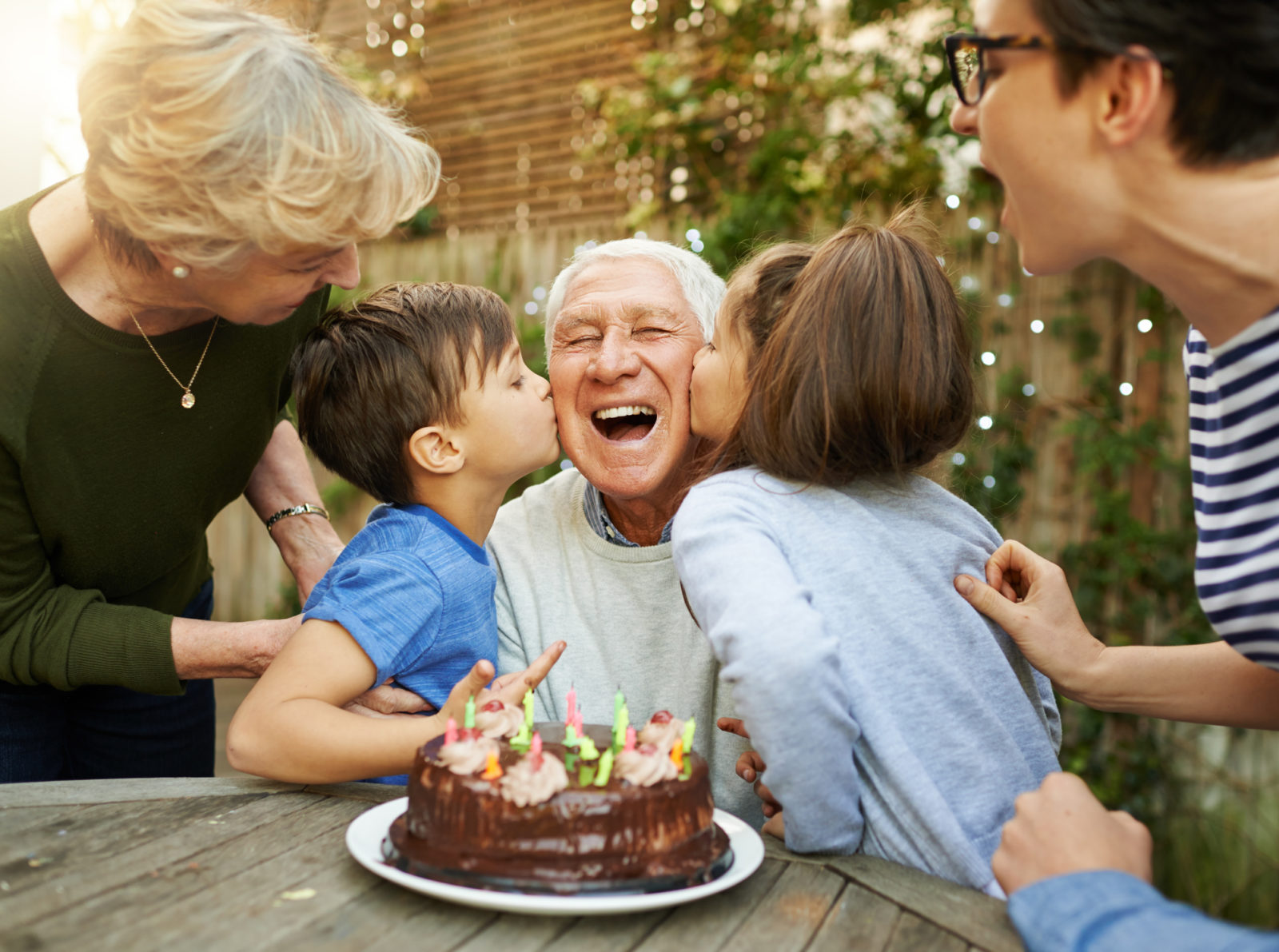Separating Fact from Fiction on the Subject of Aging

One of the reasons ageism is so rampant in America is that there are numerous erroneous and deeply held beliefs about what it means to grow older. You’ve undoubtedly run across many of these yourself. The media is rife with aging’s negative stereotypes – from a grumpy old man to a frail older woman, society seems to be telling us that older Americans are miserable, sick and stubborn. But is this really true? Does growing older necessarily mean giving up on a life of purpose and joy?
At Pathways, we deal with people facing the challenges of aging every day. We also see them enjoying their later years with the ability to fully participate in life. Growing older doesn’t have to mean growing sick or unhappy. Here are just a few misconceptions we’d like to clear up.
Myth 1: Getting older means declining health and vitality
The idea that old age means numerous health challenges and that there’s nothing that can be done to stop the onslaught of diminished vitality is perhaps one of the most damaging myths that exists. Buying into this stereotype can, by itself, create ill health. A study from Yale University showed that negative beliefs about aging may be linked to brain changes related to Alzheimer’s disease – specifically, people who had more negative thoughts about aging had a significantly greater number of amyloid plaques and neurofibrillary tangles, two conditions associated with Alzheimer’s. Another study from Yale demonstrated that positive attitudes about aging could extend one’s life by 7-1/2 years!
Myth 2: Memory loss is inevitable as we age
It is true that Alzheimer’s disease, stroke and other conditions that cause memory loss are more common as we grow older. Many will experience certain age-related memory changes. Yet, most older adults live out their lives without any serious cognitive impairments. Indeed, recent studies suggest that older brains are better at certain tasks that involve discernment and judgment—the qualities more commonly referred to as “wisdom.” Additionally, there are things we can do to help prevent memory loss as we age – challenge our minds by learning new tasks, exercise, eat well, socialize with friends, and reduce stress.
Myth 3: Older adults are grumpy and unhappy
It’s interesting that this myth persists, given that numerous studies have been conducted showing the opposite to be true. A recent study published in the Journal of Clinical Psychiatry showed that the older the person, the happier they were. A Gallup poll discovered that older people experience less stress and worry than younger people. Of course, happiness is a complex issue. Laura Carstensen, director of the Stanford Center for Longevity, discusses the nuances in her TED talk, “Older people are happier.” But suffice it to say, the idea of most seniors being grouchy and unhappy is simply untrue.
Myth 4: Everyone ages in the same way
One of the worst things you can do as an older adult is to compare your experiences of aging with someone else. We all age differently, depending on our genetic makeup, our environment, and lifestyle habits. So if you run into an old high school friend and discover they don’t seem to have the same aches and pains you do, don’t despair. The best thing you can do is to focus your attention on discovering ways to increase your health and well-being with the resources you have. Our blog routinely discusses ways for seniors to do just that.
Myth 5: It’s too late to [fill in the blank]
Let’s start with exercise – many people feel that if you haven’t been physically active all your life, starting at an advanced age will do no good. But British researchers discovered that those starting an exercise program at an older age and sustaining it throughout the eight-year study were nearly as healthy as those who had been active from a young age, achieving a sevenfold decrease in their risk of becoming ill or frail compared to those who remained inactive throughout the length of the study. Too late to achieve great things? Barbara Hillary, at age 75, became the first African-American to reach the North Pole. At age 79, she became the first to reach both poles. Too late for romance? A British study in 2012 found that the number of grooms older than 65 increased by 25 percent over the previous year; for brides, it was a 21 percent increase. In America, the number of people over the age of 50 living together in a romantic relationship doubled from 2000 to 2010. Where there’s a will, there’s a way as the old saying goes – if there’s something you really want in life, age should never be a barrier.
![PATHWAYS Care Solutions, LLC [logo]](https://www.pathwayscaresolutions.com/wp-content/uploads/sites/207/2016/10/logo-new-oct4.jpg)
![PATHWAYS Care Solutions, LLC [logo]](https://www.pathwayscaresolutions.com/wp-content/uploads/sites/207/2016/08/new-logo.png)